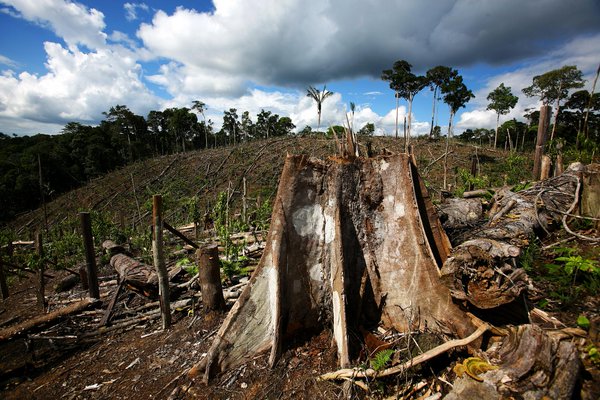
Glasgow , Scotland | THE INDEPENDENT | Mother Nature took centre stage as the pivotal UN climate conference reached the halfway point, with millions taking to the streets of the cities around the world with a call to invest in nature-based solutions and a greener approach to farming.
Nature is critical to our survival: it provides the oxygen we need to breathe, regulates weather patterns, supplies food and water for all living things, and is home to countless species of wildlife, and the ecosystems they need to survive. But, according to activists, humanity is waging a war on nature, exploiting natural resources, deforested lands for agriculture and the cattle industry.
According to the UN Environment Programme (UNEP), human activity has disrupted almost 75 per cent of the earth’s surface and put one million animal and plant species on the endangered list. A report by the UN Scientific Agency-UNESCO, also shows that oceans have become polluted, yet they absorb around one-third of our carbon emissions, meaning they are losing the ability to be ‘climate change buffers.’
“We can’t continue to push nature into a corner and expect it to deliver. We want it to sequester carbon, to provide the buffers for the high storms and mangroves and to be the lungs of the world. But when we mess with nature, nature will send us these invoices in the forms of greater intensity storms, more fires, more heatwaves and more droughts”, the Executive Director of UNEP, Inger Andersen said on Saturday
A high-level panel at COP 26 also heard that solving climate change cannot be done without solving the challenge of biodiversity loss and degraded ecosystems. Andersen called for unity and cooperation to find the solutions needed to restore nature and address climate change.
“The social-economic transformations we need will only happen when we reset our relationship with nature, understanding that we can no longer invest in that which harms our planet”, she said.
Meanwhile, the COP hosts announced that 45 governments are pledging urgent action and investment to protect nature and shift to more sustainable ways of farming. The new commitment aims to transform agriculture and food systems through policy reforms, research and innovation, in order to reduce emissions and protect nature, whilst securing food and jobs.
This includes leveraging over USD 4 billion in new public sector investment in agricultural innovation, including the development of climate-resilient crops and regenerative solutions to improve soil health, helping make these techniques and resources affordable and accessible to hundreds of millions of farmers.
Approximately a quarter of the world’s greenhouse gas emissions come from agriculture, forestry, and other land use.
COP26 President Alok Sharma, also announced on Saturday that the Glasgow Forest Declaration presented earlier this week, has been signed by 130 countries, covering 93 per cent of the world’s tree cover. He gave an update on the current negotiations at COP26 to journalists, informing them that many agreements have been reached, on topics such as gender, agriculture, and national adaptation.
 The Independent Uganda: You get the Truth we Pay the Price
The Independent Uganda: You get the Truth we Pay the Price



